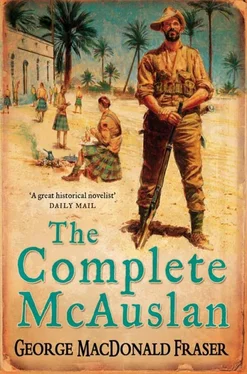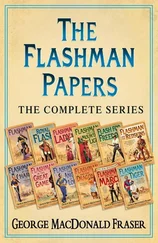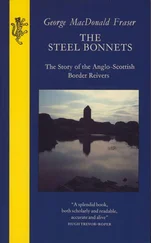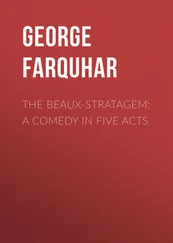Knowing Wee Wullie, I could have believed it too. After a moment the Adjutant said: “That was pretty good. Didn’t he—well, he hasn’t any decorations, has he? You’d have thought, seeing he saved a comrade’s life—”
“It wasn’t a comrade,” said the second-in-command. “He was carrying the German. And it didn’t save his life. He died soon after.”
“Even so,” said the Adjutant. “It was pretty bloody heroic.”
“I’d say so,” said the second-in-command. “But Wee Wullie’s his own worst enemy. When he was taken back to base and the hospital, he made a splendid recovery. Managed to get hold of drink, somehow, terrified the nursing staff, climbed out on the roof and sang ‘The Ball of Kirriemuir’ at the top of his voice—all seventy-odd verses, they tell me. They tried to drag him in, and he broke a military policeman’s jaw. Then he fell off the roof and got concussion. It isn’t easy to hang gongs on a man like that. Although I dare say if it had been, say, MacLennan that he’d been carrying, and not the German, that might have made a difference.”
“Well,” said the Adjutant, “it would have made our Colonel’s attitude … well, easier to understand.”
“Maybe that’s the point,” said the second-in-command. “Wee Wullie tried to save an enemy. The German to him was really a nuisance—a dead loss. But he was prepared to risk his own life for him, to go all the way. I don’t know. Anyway,” he added, looking as near embarrassment as was possible for him, “that may explain some of the things you haven’t understood about him. Why, as far as the Colonel is concerned, he can set fire to the barracks and murder half the redcaps in the garrison, but the Colonel will still be bound to go all along the line for him. So will I, if it means the G.O.C., and the High Command, the whole lot. And so will the battalion. It’s an odd situation. Oh, perhaps Wullie understands it and plays on it. So what? I know the Provost Marshal’s right: he’s a drunken, dangerous, disgraceful, useless ruffian. But whenever I see him at his worst, I can’t help thinking of him going through that desert, marching, and not falling. Just marching. Now, where’s the ludo set? There isn’t a subaltern can live with me on the board tonight.”
I have my own view of Wee Wullie, which is naturally coloured by my own experience of him. When I finally left the battalion, he was still there, pottering about the M.O.’s garden and fighting with the guard; they were still protecting him, rightly or wrongly. What is worth protecting? Anyway, his story is as I saw it, and as the second-in-command told it to me. Only the times have changed.
The General Danced at Dawn
Friday night was always dancing night. On the six other evenings of the week the officers’ mess was informal, and we had supper in various states of uniform, mufti and undress, throwing bits of bread across the table and invading the kitchen for second helpings of caramel pudding. The veranda was always open, and the soft, dark night of North Africa hung around pleasantly beyond the screens.
Afterwards in the ante-room we played cards, or ludo, or occasional games of touch rugby, or just talked the kind of nonsense that subalterns talk, and whichever of these things we did our seniors either joined in or ignored completely; I have seen a game of touch rugby in progress, with the chairs and tables pushed back against the wall, and a heaving mass of Young Scotland wrestling for a “ball” made of sock stuffed with rags, while less than a yard away the Adjutant, two company commanders, and the M.O. were sitting round a card table holding an inquest on five spades doubled. There was great toleration.
Friday night was different. On that evening we dressed in our best tartans and walked over to the mess in twos and threes as soon as the solitary piper, who had been playing outside the mess for about twenty minutes, broke into the slow, plaintive “Battle of the Somme”—or, as it is known colloquially, “See’s the key, or I’ll roar up yer lobby”.
In the mess we would have a drink in the ante-room, the captains and the majors sniffing at their Talisker and Glengrant, and the rest of us having beer or orange juice—I have known messes where subalterns felt they had to drink hard stuff for fear of being thought cissies, but in a Highland mess nobody presses anybody. For one thing, no senior officer with a whisky throat wants to see his single malt being wasted on some pink and eager one-pipper.
Presently the Colonel would knock his pipe out and limp into the dining-room, and we would follow in to sit round the huge white table. I never saw a table like it, and never expect to; Lord Mayor’s banquets, college dinners, and American conventions at 100 dollars a plate may surpass it in spectacular grandeur, but when you sat down at this table you were conscious of sitting at a dinner that had lasted for centuries.
The table was a mass of silver: the horse’s-hoof snuffbox that was a relic of the few minutes at Waterloo when the regiment broke Napoleon’s cavalry, and Wellington himself took off his hat and said, “Thank you, gentlemen”; the set of spoons from some forgotten Indian palace with strange gods carved on the handles; the great bowl, magnificently engraved, presented by an American infantry regiment in Normandy, and the little quaich that had been found in the dust at Magersfontein; loot that had come from Vienna, Moscow, Berlin, Rome, the Taku Forts, and God knows where, some direct and some via French, Prussian, Polish, Spanish, and other regiments from half the countries on earth—stolen, presented, captured, bought, won, given, taken, and acquired by accident. It was priceless, and as you sat and contemplated it you could almost feel the shades elbowing you round the table.
At any rate, it enabled us to get through the tinned tomato soup, rissoles and jam tart, which seemed barely adequate to such a splendid setting, or to the sonorous grace which the padre had said beforehand (“I say, padre, can you say it in Gaelic?” “Away, a’ he talks is Glesca.” “Whessht for the minister”). And when it was done and the youth who was vice-president had said, “The King,” passed the port in the wrong direction, giggled, upset his glass, and been sorrowfully rebuked from the table head, we lit up and waited for the piper. The voices, English of Sandhurst and Scottish of Kelvinside, Perthshire, and Peterhead, died away, and the pipe-major strode in and let us have it.
A twenty-minute pibroch is no small thing at a range of four feet. Some liked it, some affected to like it, and some buried their heads in their hands and endured it. But in everyone the harsh, keening siren-sound at least provoked thought. I can see them still, the faces round the table; the sad padre, tapping slowly to “The Battle of the Spoiled Dyke”; the junior subaltern, with his mouth slightly open, watching the tobacco smoke wreathing in low clouds over the white cloth; the signals officer, tapping his thumb-nail against his teeth and shifting restlessly as he wondered if he would get away in time to meet that Ensa singer at the club; the Colonel, chin on fist like a great bald eagle with his pipe clamped between his teeth and his eyes two generations away; the men, the boys, the dreamer’s eyes and the boozer’s melancholy, all silent while the music enveloped them.
When it was over, and we had thumped the table, and the pipe-major had downed his whisky with a Gaelic toast, we would troop out again, and the Colonel would grin and rub tobacco between his palms, and say:
“Right, gentlemen, shall we dance?”
This was part of the weekly ritual. We would take off our tunics, and the pipers would make preparatory whines, and the Colonel would perch on a table, swinging his game leg which the Japanese had broken for him on the railway, and would say:
Читать дальше












